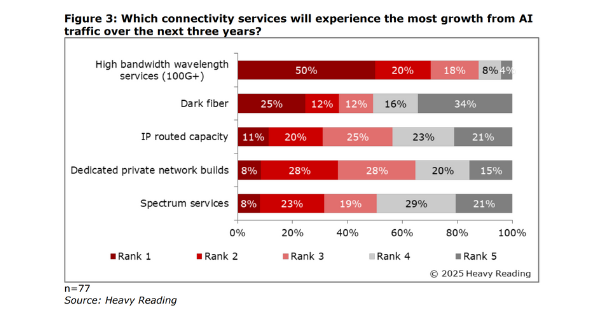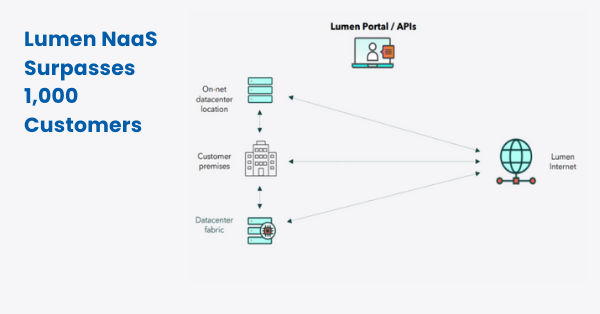Verizon’s Strategic Move into Private 5G and Enterprise Solutions
In the rapidly evolving telecommunications landscape, Verizon Business has taken significant strides in positioning itself as a leading provider of private 5G networks and enterprise solutions. Under Jennifer Artley’s guidance and Arvin Singh’s expertise, Verizon Business has embarked on an ambitious journey to revolutionize how enterprises access and leverage private networks, IoT, and edge computing solutions. This article delves into Verizon’s strategic approach, highlighting its achievements, challenges, and broader implications for the industry.
The Genesis of Verizon’s 5G Acceleration Team
Three years ago, a former BT executive, Jennifer Artley was brought into Verizon Business to lead the newly formed 5G acceleration team. This initiative aimed to unify Verizon’s diverse networking capabilities, focusing on low- and high-power IoT and localized edge computing to enhance enterprise solutions. With Artley at the helm, the team has grown significantly, boasting a headcount increase from 150 to 250 in just a year. This expansion underscores Verizon’s commitment to driving the private network market and its readiness to tackle the evolving demands of enterprise connectivity.
Technological Foundation of Private 5G Networks
Following the introduction of Verizon’s 5G acceleration team, it’s crucial to understand the technological foundations enabling these advanced enterprise solutions. Private 5G networks offer a leap in connectivity capabilities compared to their predecessors, characterized by their superior bandwidth, lower latency, and robust security features. These networks support an extensive array of IoT devices, enabling enterprises to unlock new levels of efficiency and innovation. The underlying technology of 5G allows for the creation of highly customizable networks tailored to specific operational needs, paving the way for Verizon’s ambitious vision for enterprise connectivity.
Structuring for Success
Artley’s leadership has seen the formation of specialized teams focusing on sales, ecosystem development, strategy, governance, and product management. This structured approach facilitates a more agile and focused effort in incubating private network and edge solutions. Arvin Singh’s recruitment as the global head of 5G solutions and innovation further exemplifies Verizon’s dedication to enhancing its sales architecture and innovation capabilities, ensuring a comprehensive approach to delivering advanced connectivity solutions to enterprises.
Strategic Partnerships and Collaborations
Verizon’s approach to structuring for success is significantly bolstered by its strategic partnerships and collaborations. The company has joined forces with leading technology vendors, cloud providers, and system integrators such as Nokia, Ericsson, and Celona. These collaborations are instrumental in Verizon’s ability to offer end-to-end solutions that cater to the nuanced demands of enterprise customers. By leveraging these partnerships, Verizon not only enhances its service portfolio but also strengthens its position as a leader in the private 5G network space.
Addressing Industry Challenges and Opportunities
The push towards private 5G networks emerges against a backdrop of Industry 4.0’s lagging adoption, where the theoretical potential of advanced networking technologies has yet to be fully realized in practical applications. Verizon’s strategy, as articulated by Singh, revolves around a “land-and-expand” approach, emphasizing immediate, tangible benefits to enterprises while keeping future possibilities in view. This pragmatic strategy acknowledges the complexities of the sales cycle and ecosystem dynamics, aiming to bridge the gap between hype and reality in the deployment of private networks.
Broadening the Market Focus: SMEs and Global Enterprises
Remarkably, Verizon Business has managed to extend its reach beyond the expected realm of large, global enterprises to the U.S. middle market, including small and mid-sized firms. This shift acknowledges the critical role SMEs play in the economy, representing a vast majority of private businesses and a significant portion of the workforce. By offering scalable and flexible network solutions, Verizon is democratizing access to advanced connectivity, proving that private 5G networks are not just the preserve of large corporations with deep pockets.
Competitive Landscape
In the fiercely competitive realm of private 5G networks, Verizon’s broadening market focus positions it uniquely against rivals like AT&T, T-Mobile, and other global telecom giants. This section examines Verizon’s strategic positioning and how it navigates the challenges and opportunities presented by the competitive landscape. The company’s emphasis on SMEs and its ability to deliver tailored solutions across various industries serve as key differentiators. Understanding the competitive dynamics offers insights into Verizon’s continuous efforts to innovate and lead in the market.
Real-world Applications and Value Demonstration
From tulip farms to music events, Verizon has showcased the immediate value of private 5G networks in enhancing operational efficiency and solving real-world problems. Artley’s anecdotes about deploying networks in unique settings highlight the versatility and impact of Verizon’s solutions, emphasizing the importance of reliable connectivity and the ability to manage operations independently of public networks.
Case Studies: Success Stories and Lessons Learned
Verizon’s journey in the private 5G landscape is marked by diverse and impactful implementations across various sectors. Each case study offers unique insights into the adaptability and effectiveness of private 5G solutions in addressing specific industry needs. Below, we explore several notable collaborations that underscore Verizon’s commitment to innovation and excellence.
Verizon and Audi Launch Custom Private 5G Automotive Test Track
Verizon Business and Audi AG have embarked on a groundbreaking collaboration to establish a custom private 5G network environment at Audi’s test track. This initiative is designed to enhance global connectivity testing, paving the way for automotive advancements. The private 5G network allows Audi to simulate and test new automotive technologies in a secure, high-speed, and low-latency environment, accelerating the development of connected and autonomous vehicles. Read more about this case study.
Transforming the Port of Virginia with Private 5G
Verizon Business is revolutionizing the Port of Virginia with its latest 5G network expansion at Norfolk International Terminal. This project enhances connectivity and operational efficiency at one of the USA’s largest shipping hubs. The deployment of private 5G networks facilitates improved logistics management, real-time tracking of goods, and streamlined operations, setting a new standard for port efficiency. Discover the impact of this project.
Enhancing Fan Experience at Nissan Stadium with the Tennessee Titans
In a strategic collaboration with the Tennessee Titans, Verizon has introduced enhanced 5G connectivity and managed private wireless network solutions at Nissan Stadium. This initiative aims to redefine fan experiences by providing high-speed, reliable connectivity that supports immersive engagement and interactive features, enriching the overall game-day experience for fans. Learn more about this partnership.
Onsite Network-as-a-Service (NaaS) Offering for Enterprises
Verizon has unveiled a next-generation Mobile Onsite Network-as-a-Service (NaaS) solution. This portable 10-foot trailer is designed to deliver unparalleled private network, MEC, SD-WAN, and satellite services directly to clients. With its inaugural deployment at Lockheed Martin’s Colorado campus, the NaaS serves as a dynamic testing platform and a Mobile Lab for onsite application testing. Explore this innovative offering.
Private 5G Network for Rocklahoma Music Festival
In partnership with Pryor Creek Music Festivals, Verizon Business has implemented a secure, private 5G local-area network (LAN) for the Rocklahoma outdoor music festival. This deployment ensures reliable, high-capacity connectivity for event operations, enhancing both the attendee experience and operational efficiency. Read more about this music festival’s connectivity solution.
Verizon Business and KPMG Collaborate on Healthcare Innovation
Verizon Business and KPMG LLP have joined forces to deliver 5G solutions aimed at transforming the healthcare and life sciences sectors. Through this collaboration, KPMG’s Ignition Center inside KPMG Lakehouse now features Verizon’s Private 5G wireless network, facilitating the creation of a Healthcare Lab experience where clients can explore the latest healthcare technologies. Discover the potential of 5G in healthcare.
These case studies exemplify Verizon’s ability to tailor private 5G solutions to a wide range of industry challenges, showcasing the company’s innovative spirit and commitment to driving digital transformation across sectors.
Expanding Horizons: The Global Enterprise Opportunity
Beyond the SME sector, Verizon Business is making significant inroads into the global enterprise market, as evidenced by high-profile projects like the multi-core installation at an Audi test track in Germany. These ventures illustrate the vast potential of private 5G networks to revolutionize industries worldwide, offering customized solutions that meet the specific needs of each enterprise.
The Future of Verizon Business and Private 5G Networks
Looking ahead, Verizon Business is positioned to play a pivotal role in the expansion of private 5G networks both in the U.S. and internationally. With active operations in multiple markets and plans for further expansion, Verizon is advocating for more liberal spectrum policies to facilitate the global deployment of private networks. This advocacy underscores the broader challenge of spectrum availability, which remains a critical factor in the widespread adoption of private 5G solutions.
Future Trends in Private 5G Networks
Before concluding the comprehensive analysis, it’s imperative to look ahead at the emerging trends shaping the future of private 5G networks. The integration of AI and machine learning, the increasing emphasis on cybersecurity, and the potential for regulatory shifts are poised to influence the trajectory of the industry. Verizon’s proactive stance on these trends demonstrates its commitment to staying at the forefront of technological advancements, ensuring its solutions remain relevant and valuable for enterprises navigating the complexities of digital transformation.
Conclusion
Verizon Business’s strategic pivot towards private 5G networks and enterprise solutions under the leadership of Jennifer Artley and Arvin Singh marks a significant milestone in the telecommunications industry. By addressing the unique needs of both SMEs and global enterprises, Verizon is not only expanding its market reach but also demonstrating the transformative potential of private 5G networks. As the company continues to innovate and adapt to market shifts, its efforts are likely to shape the future of enterprise connectivity, setting new standards for agility, reliability, and customization in the digital age.

































